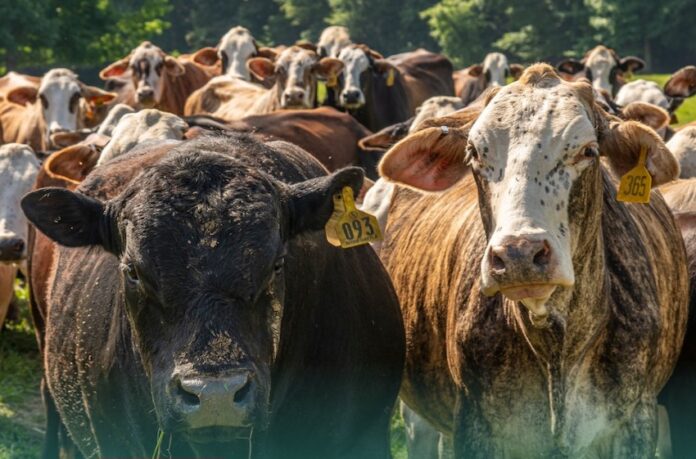United States Secretary of Agriculture Brooke L. Rollins on Monday announced gradual, “risk-based port re-openings for cattle, bison and equines” from Mexico beginning next week.
In a press release, the U.S. Department of Agriculture (USDA) said that U.S. ports will reopen in phases after a lengthy closure to Mexican livestock imports due to the damaging New World screwworm pest.

The screwworm, a species of fly eradicated in the U.S. for decades, had been moving northward in Mexico. The pest can infest livestock and wildlife and carry maggots that burrow into the skin of living animals, causing serious and often fatal damage.
The port re-openings will occur as follows:
- Douglas, Arizona – July 7
- Columbus, New Mexico – July 14
- Santa Teresa, New Mexico – July 21
- Del Rio, Texas – Aug. 18
- Laredo, Texas – Sept. 15
After each re-opening, the USDA will evaluate the situation to ensure no adverse effects arise.
The USDA said the Douglas, Arizona, port will be the first to open because it offers the lowest risk, based on neighboring Sonora’s geography and history of collaboration with the USDA on animal health issues.
Fight against screwworm ramps up with reopening of sterile fly plant in Chiapas
The Agricultural Markets Consulting Group (GCMA) — a Mexican company that provides market analysis, price forecasts, and consulting services for the agricultural and food sectors — applauded the USDA announcement.
“This gradual reopening is the result of a responsible binational effort, highlighting the importance of maintaining animal health as a pillar of Mexico’s agricultural competitiveness,” GCMA general director Juan Carlos Anaya said.
“At the same time, this development provides certainty to producers and exporters, promoting the orderly recovery of live cattle exports and contributing to market stability on the northern border,” Anaya said.
The USDA attributed its decision to the results of “extensive collaboration between USDA Animal and Plant Health Inspection Service experts and their counterparts in Mexico to increase New World Screwworm (NWS) surveillance, detection, and eradication efforts.”
The USDA said it will continue working with Mexico’s National Service for Agri-Food Health, Safety and Quality (Senasica) on outreach, education and training efforts “to raise awareness and put producers on high alert about NWS.” It will also continue relying on Senasica’s central laboratory for diagnosing cases.
The Mexican Meat Council said that since ports were closed on May 11 domestic livestock producers were unable to export approximately 650,000 head of cattle and other livestock, a loss of roughly US $700 million.
With reports from Reuters, El Economista, El Universal and Vanguardia
